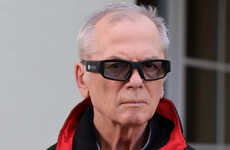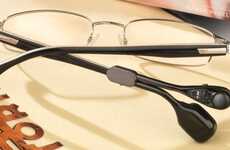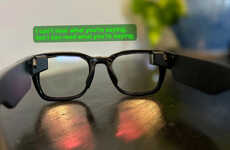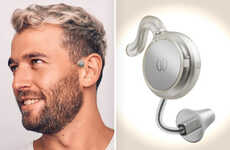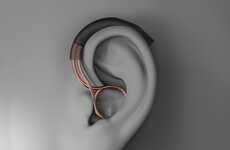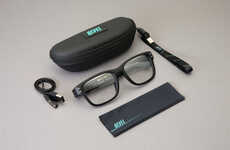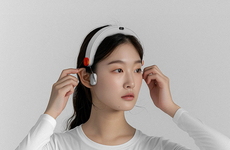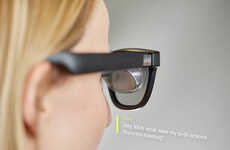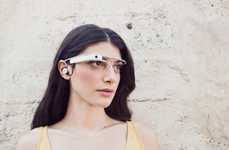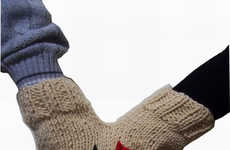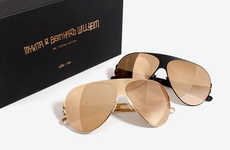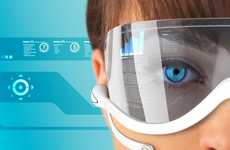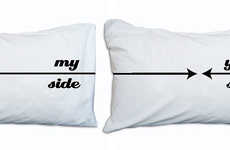
Himri Glasses Make Sounds Visible to Users with Hearing Impairments
Amelia Roblin — May 29, 2012 — Tech
References: industrialdesignserved
I couldn't see wearing these Himri Glasses every day, but as a deaf person, certainly this techie fashion accessory would have a valuable use for many scenarios in and out of the home.
What the spectacles do is pick up surrounding noises, analyze their amplitudes and communicate their volume intensities through live spiky lines on the sides of the lenses. The device works with the help of a microphone and a processing board in one arm and a battery in the other. The two clear lenses function as LCD monochromatic screens.
While wearing Daniele Silvestri and Andrea Chagnon's eyewear, the user will receive extrasensory feedback about possible threats in his midst. Approaching cars and wailing alarms will trigger exaggerated movement on one or both sides of the Himri Glasses so that the wearer will be alerted.
What the spectacles do is pick up surrounding noises, analyze their amplitudes and communicate their volume intensities through live spiky lines on the sides of the lenses. The device works with the help of a microphone and a processing board in one arm and a battery in the other. The two clear lenses function as LCD monochromatic screens.
While wearing Daniele Silvestri and Andrea Chagnon's eyewear, the user will receive extrasensory feedback about possible threats in his midst. Approaching cars and wailing alarms will trigger exaggerated movement on one or both sides of the Himri Glasses so that the wearer will be alerted.
Trend Themes
1. Assistive Listening Glasses - Assistive listening glasses have disruptive innovation opportunities in the healthcare industry by helping those with hearing impairments to understand their surroundings better.
2. Accessible Wearable Technology - Wearable technology that serves as an aid for people with disabilities has disruptive innovation opportunities in the technology industry by serving a previously underserved market.
3. Sensor-based Assistive Devices - The trend towards sensor-based assistive devices has disruptive innovation opportunities in the manufacturing industry by providing solutions that can help enhance accessibility for people with disabilities.
Industry Implications
1. Healthcare - The healthcare industry can benefit from assistive listening glasses by offering these devices as a solution to support the needs of those with hearing impairments.
2. Technology - The technology industry can benefit from the growth of wearable technology that caters to people with disabilities, creating opportunities for innovation in the field.
3. Manufacturing - Manufacturing industries can create sensor-based assistive devices, serving a previously underserved market and opening avenues for further innovation.
4.6
Score
Popularity
Activity
Freshness

